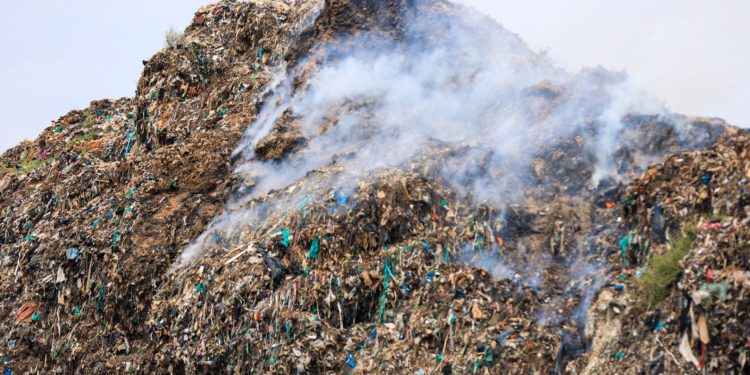The Kampala Capital City Authority (KCCA) has secured clearance from the Solicitor General to begin decommissioning and repurposing the Kiteezi landfill in Wakiso District, nearly a year after its catastrophic collapse in 2024.
The ambitious project will include cutting and stabilizing steep waste slopes, pollution control, and sealing the landfill surface to prevent further disasters. It also aims to drain and treat leachate, a hazardous liquid from the site that has raised health and environmental concerns among nearby communities.
Speaking before the Committee on Commissions, State Authorities, and State Enterprises (COSASE), KCCA Deputy Executive Director Benon Kigenyi confirmed that all regulatory approvals are in place for the contractor, UN Habitat, to begin the works.
“The contract for the UN Habitat has been cleared, they are coming in to give us humanitarian assistance, they have US$1 million to support us with technology which has worked elsewhere, they are coming with experience from other countries with landfills, they have the capacity to get the required equipment easily,” Kigenyi said.
The project comes amid ongoing concerns highlighted in the Auditor General’s report, including cracks in the landfill that could potentially trigger another collapse. Medard Sseggona, chairperson of COSASE, criticized previous lapses in oversight:
“There was laxity occasioned by a chief government valuer who did not treat this matter seriously, yet these are matters you must settle. The report shows the would-be efforts of KCCA have been thwarted by the government valuer,” said Sseggona, also the Busiro County East MP.
The Auditor General also noted that the relocation compensation of up to Shs 2 million per household was insufficient to cover the high costs of urban living. As a result, some residents who initially moved have returned to their homes, while others remain dangerously close to the landfill.
Kigenyi praised UN Habitat’s modern technology and international expertise, with the works set to begin in October 2025, a critical step to safeguard both the environment and communities surrounding Kiteezi.
“The contract for the UN Habitat has been cleared, they are coming in to give us humanitarian assistance, they have US$1 million to support us with technology which has worked elsewhere, they are coming with experience from other countries with landfills, they have the capacity to get the required equipment easily,” Kigenyi reiterated.
The decommissioning of Kiteezi is seen as a vital intervention, combining technology, environmental management, and community safety to prevent future disasters at one of the country’s largest waste disposal sites.





















